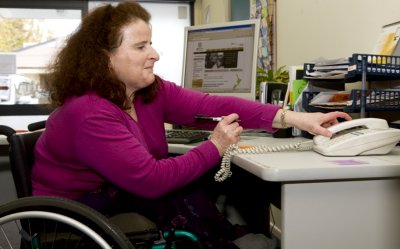Making reasonable adjustments
Employers have a legal duty to make reasonable adjustments to make sure disabled workers (including contract workers, trainees, apprentices and business partners) arenít seriously disadvantaged when doing their jobs.
What is reasonable?
There are a variety of actions that employers can take that will ensure that disabled people are not disavantaged when in work. These include:
- Making reasonable adjustments during the recruitment process
- Doing things another way, such as allowing someone with social anxiety disorder to have their own desk instead of hot-desking
- Making physical changes for example installing a ramp for a wheelchair user or an audio-visual fire alarm for a deaf person
- Letting a disabled person work somewhere else e.g. on the ground floor for a wheelchair user
- Changing their equipment, such as providing a special keyboard if they have arthritis
- Allowing employees who become disabled to make a phased return to work - e.g. working flexible hours or part-time
- Offering employees training opportunities, recreation and refreshment facilities
Paying for adjustments
Funding might be available from the Access to Work Scheme to cover the costs of making reasonable adjustments to accommodate the needs of a disabled member of staff.
Training Course
WDP provide a half day training course on making reasonable adjustments that many employers have found beneficial.



